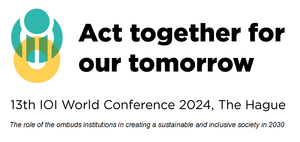A European Ombudsman inquiry into Frontex’s role in search and rescue operations has shown that the current rules leave the EU’s Border and Coast Guard Agency unable fully to fulfil its fundamental rights obligations and too reliant on Member States to act when boats carrying migrants are in distress.
The inquiry was launched by Ombudsman Emily O’Reilly following the Adriana tragedy in June 2023, which resulted in over 600 people drowning off the coast of Greece. According to documents inspected during the inquiry, Frontex made four separate offers to assist the Greek authorities by providing aerial surveillance of the Adriana but received no response. The current rules mean that Frontex was not permitted to go to the Adriana’s location at critical periods without the Greek authorities’ permission.
Consequently, Frontex was at the scene of the Adriana only twice — once briefly by plane two hours after the Italian authorities first made the alert about the Adriana and then 18 hours later with a drone after the boat had already sunk.
The inquiry also showed that Frontex has no internal guidelines on issuing emergency signals (e.g. Mayday calls), and that there is a failure to ensure Frontex’s fundamental rights monitors are sufficiently involved in decision making on maritime emergencies.
The Ombudsman asked Frontex to address these and other shortcomings. She also said that, given growing concerns about fundamental rights violations in one Member State, Frontex should consider whether the threshold has been reached to allow it to formally end its activities with the Member State in question.
“We must ask ourselves why a boat so obviously in need of help never received that help despite an EU agency, two member states’ authorities, civil society, and private ships knowing of its existence.
Why did reports of overcrowding, an apparent lack of life vests, children on board, and possible fatalities fail to trigger timely rescue efforts that could have saved hundreds of lives,” said Emily O’Reilly.
Kindly click here to read the entire article.
Source: The Office of the European Ombudsman

